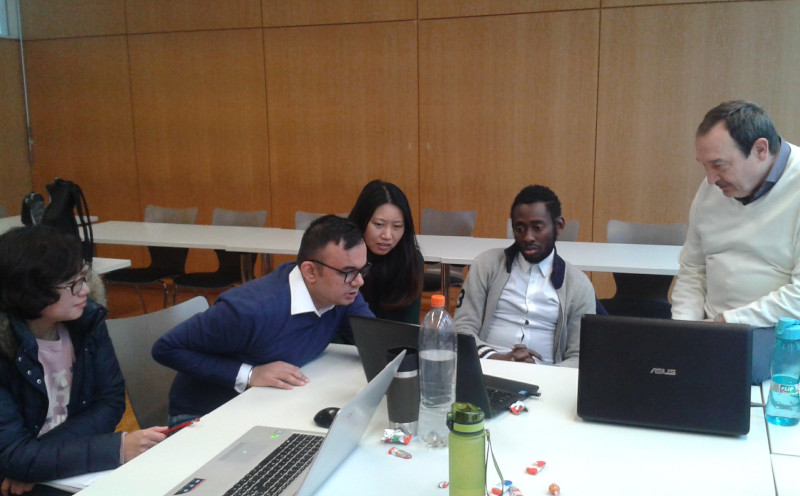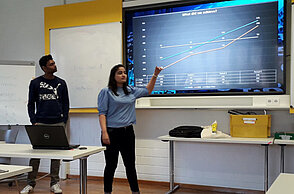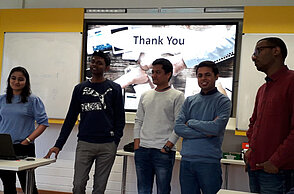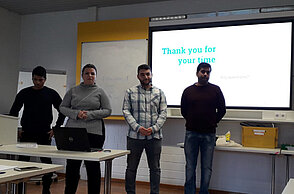Managing a multi-national company and making strategic decisions
News
Third-semester MBA students tested their management skills through an intensive simulation and five decision-making rounds. Can they manage the stress to make decisions that affect thousands of their employees? Are they able to make business plans and follow through with strategic decisions for each round? Or must they be agile and react to the competition by adjusting their plans? Through the MBA’s management simulation and business planning course, which was taught by Professor Eckart Liesegang, students had the opportunity to test and apply their skills that they have learned throughout the past year and a half. This capstone course allowed them to apply all theories they have learned in order to manage a global company. Students had to integrate skills from courses such as, project management, strategic management, finance and controlling, HR, CSR, economics, marketing, and leadership, to name a few. It truly was a culmination of their business and management courses.
The capstone course required lots of strategic thinking, business planning, and analysis of reports about finances, production, sales, and R&D. Furthermore, it was crucial to have soft skills, such as communication with executive members, collaboration with the entire team, and time management. Not one decision could have been a stand-alone decision. Therefore, it was essential that all team members were actively participating and preparing individual tasks to ensure a successful team decision. Once decisions were made, each company was able to see how share prices, profits, sales, production, product development and EVA were all affected. In addition, each company had to write a business plan that envisioned their plans for three financial periods, which included developing strategy maps, business scorecards, and mapping KPIs with actions.
One MBA student from the US commented, “We couldn’t have ended our courses better as we had with Management Simulation and Business Planning. This experience gave me a tiny glimpse of what C-suite executive managers do to plan and make decisions for all stakeholders. It was hard work, but I had loads of fun working with my team and learning from the professor who was so passionate about his work.”
Ujwal from India said, “I learned skills which are essential to run a company successfully. We learned how decision-making has a major impact on a company’s profits and share prices.”
Adam from Pakistan shared his experience, “Business simulation gave us a chance to translate academic business knowledge into actions.”
Text: Hellen Phan-Lesti and MBA Office
Photos: MBA Office





